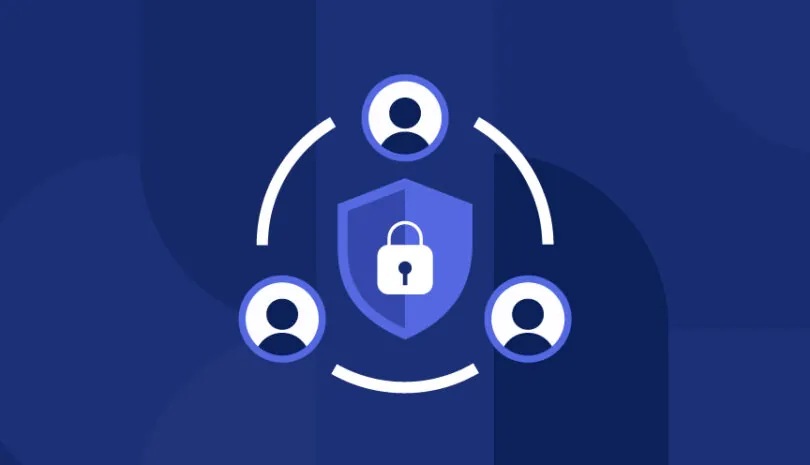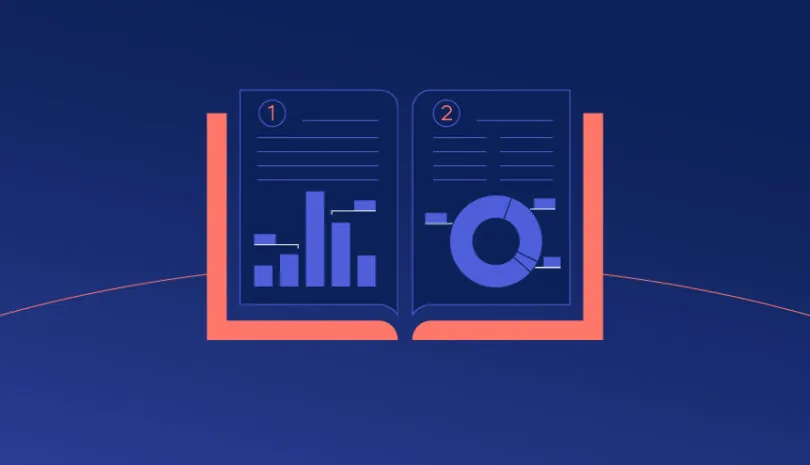Modern businesses rely more heavily than ever on third-party vendors, cloud platforms, and outsourced services. While these partnerships improve scalability and operations, they also introduce serious security risks. Attackers are not just targeting businesses directly. They are actively looking for weaknesses in vendor networks to gain access to critical systems.
According to IBM’s Cost of a Data Breach 2024 report, the global average cost of a breach reached a record $4.45 million. Breaches involving third parties took significantly longer to identify and contain, averaging 294 days. The report also highlights that 15 percent of all breaches stemmed from vulnerabilities within third-party suppliers.
Managing vendor risk has become a growing challenge. As your business ecosystem expands, it becomes harder to monitor who has access to your systems and how securely those systems are being managed.
A security risk assessment company helps you take control of this complexity. These firms are equipped to identify and assess vulnerabilities across your internal operations and third-party relationships. By uncovering weak points before attackers do, they help protect your business from operational disruption, regulatory fallout, and reputational damage.
The Evolving Security Threat Landscape
Cybersecurity threats have intensified in 2024, with attackers increasingly targeting third-party vendors to infiltrate organizations. Ransomware attacks have reached unprecedented levels. According to BlackFog’s 2024 State of Ransomware Report, ransomware attacks surged throughout the year, marking a record-breaking period for such incidents.
Supply chain vulnerabilities remain a significant concern. The MOVEit Transfer software, widely used for secure file transfers, experienced a critical vulnerability in 2024. This flaw, identified as CVE-2024-5806, allowed unauthorized access to sensitive data, affecting numerous organizations, including Amazon, which confirmed that 2.8 million lines of employee data were exposed due to this breach.
In response to these escalating threats, regulatory bodies have tightened compliance requirements. Frameworks such as GDPR, HIPAA, ISO 27001, and SOC 2 now place greater emphasis on third-party risk management. Organizations are expected to not only secure their internal systems but also ensure that their vendors and service providers adhere to stringent security standards.
Proactively assessing and managing third-party risks has become essential for organizations aiming to safeguard their operations and maintain compliance in this evolving threat landscape.
The Role of Security Risk Assessment Companies
Security risk assessment companies play a critical role in helping businesses identify and manage the full spectrum of cybersecurity threats. Their expertise extends beyond internal IT environments to include third-party risks, which are often more difficult to monitor and control. These firms provide structured, methodical evaluations to uncover gaps that internal teams may overlook.
Core services typically include internal and external vulnerability assessments, threat modeling, risk prioritization, third-party and vendor risk assessments, and remediation planning. Many companies, like Panorays, also offer tailored reporting that aligns with specific industry regulations or security frameworks.
What sets these companies apart is their ability to view risk through a broader lens. Rather than focusing solely on in-house systems, they examine the full business ecosystem—including vendors, contractors, suppliers, cloud platforms, and other service providers with access to your data or infrastructure. This holistic approach ensures that potential vulnerabilities are addressed not only within your organization, but also across all external touchpoints.
By turning assessments into actionable strategies, these companies help businesses shift from a reactive stance to a proactive one. This reduces the likelihood of incidents, improves regulatory compliance, and strengthens overall resilience against evolving cyber threats.
The Risks of Not Conducting Regular Security Assessments
Neglecting regular security assessments can expose businesses to significant risks that extend beyond financial loss. Data breaches are becoming more frequent and costly. According to PwC’s 2024 Global Digital Trust Insights survey, the proportion of businesses experiencing a data breach costing over $1 million increased from 27% to 36% year over year. The global average cost of a damaging cyberattack was reported at $4.4 million, with the healthcare sector experiencing costs 20% higher at $5.3 million.
Beyond financial implications, breaches can lead to regulatory penalties, lawsuits, and long-term reputational damage. Consumers are increasingly sensitive to how companies handle their data, and a single incident can erode trust and loyalty.
Operational downtime is another critical consequence. If a key vendor experiences a cyberattack and your business depends on their services, you could face service interruptions, delays, or even full operational shutdowns. These disruptions affect revenue, compliance, and customer satisfaction.
Regular security assessments help organizations detect vulnerabilities before they can be exploited. They offer visibility into both internal and third-party risks, making it possible to address issues proactively and avoid the fallout of preventable incidents.
Benefits of Partnering with a Security Risk Assessment Company
Working with a security risk assessment company offers several strategic advantages that strengthen both your cybersecurity posture and your ability to meet regulatory expectations. These firms bring specialized expertise in identifying vulnerabilities, particularly those introduced by third-party vendors. They tailor assessments to fit your business model, helping you uncover risks that internal teams may miss.
In addition to providing a clearer view of your current security landscape, they offer continuous monitoring, risk prioritization, and remediation planning. Their support also ensures your organization aligns with frameworks like ISO 27001, SOC 2, and GDPR, helping reduce compliance gaps and future liabilities.
Expertise and Knowledge
Security risk assessment companies offer access to professionals who specialize in identifying, analyzing, and mitigating a wide range of cyber risks. Their teams bring deep knowledge of internal infrastructure threats and third-party vulnerabilities, often with certifications in frameworks like ISO 27001, NIST, or CIS.
Unlike general IT teams that are typically focused on day-to-day operations, these experts conduct in-depth evaluations using proven methodologies and advanced tools. They know how to spot red flags early, interpret subtle indicators of risk, and design strategies that prevent threats from escalating. Their experience helps businesses make smarter, faster security decisions with greater confidence.
Customized Solutions
No two businesses have the same vendor network, infrastructure, or regulatory obligations. Security risk assessment companies recognize this and provide tailored solutions that reflect your unique risk landscape. They take the time to understand your business model, data flows, third-party relationships, and compliance goals.
Whether you operate in healthcare, finance, or tech, they adjust their approach to meet your industry’s specific needs. This customization ensures that assessments are not only thorough but also relevant. It also improves accuracy when prioritizing risks and designing mitigation strategies, helping your organization respond more effectively to evolving security threats.
Ongoing Monitoring
Cyber threats do not stop evolving, and neither should your risk management efforts. Leading security risk assessment companies offer ongoing monitoring and periodic reassessments to help organizations stay protected over time. Rather than performing one-time audits, they continuously evaluate your environment for new vulnerabilities, changes in vendor risk, and emerging attack vectors.
This real-time visibility is especially important for businesses with large or dynamic vendor ecosystems. With alerts, updated reports, and expert guidance, these firms help ensure you are never blindsided by a security lapse. Ongoing monitoring adds a layer of resilience that static assessments simply cannot match.
Compliance Assurance
Staying compliant with regulatory standards is a challenge, especially as frameworks become more focused on third-party risk. A strong assessment partner understands the ins and outs of major compliance frameworks like GDPR, HIPAA, SOC 2, and ISO 27001. They help you align your security practices with these standards by identifying gaps, recommending fixes, and providing documentation to support audits and certifications.
Their insight ensures that your organization is not only secure but also audit-ready. With growing pressure from regulators and stakeholders to prove due diligence, a partner that provides compliance assurance can be the difference between passing and failing critical reviews.
Common Misconceptions About Security Risk Assessment Companies
Many organizations assume their internal IT or security team can handle all aspects of risk management. While these teams are critical to daily operations, they are often stretched thin and lack the dedicated tools or specialized expertise needed to evaluate third-party risks comprehensively. Security risk assessment companies focus specifically on uncovering risks that extend beyond the organization’s perimeter, something in-house teams may not have the capacity to do consistently.
Another widespread misconception is that only large enterprises are targeted by cybercriminals. In reality, small and midsize businesses are frequently attacked because they often have fewer security resources. These businesses are also more likely to work with multiple vendors, which can expand their risk surface if not properly managed.
Cost is also a perceived barrier. Some companies hesitate to invest in external assessments, assuming it will be too expensive. However, the cost of a breach, including downtime, regulatory fines, legal expenses, and reputation damage, can far exceed the cost of preventative action. Partnering with a security risk assessment company is not just a safeguard, it is a strategic investment in business continuity, trust, and long-term resilience.
Key Considerations When Choosing a Security Risk Assessment Company
Selecting the right security risk assessment company is a critical decision that can significantly impact your organization’s ability to manage threats and maintain compliance. Not all providers offer the same level of expertise or depth of service, so it’s important to evaluate them carefully.
Start by looking for a company with experience in your industry. Each sector faces unique risks, and a provider that understands your regulatory landscape and operational challenges will deliver more relevant insights. A strong partner should also offer a comprehensive suite of services, including internal vulnerability scans, third-party risk assessments, penetration testing, and remediation support.
Equally important is their familiarity with compliance frameworks such as SOC 2, ISO 27001, GDPR, and HIPAA. These standards often form the foundation of corporate security policies, and a knowledgeable provider will help you meet and maintain them.
Look for clear communication, detailed reporting, and a collaborative approach. A good assessment company will not only identify risks but also help you prioritize and act on them effectively. Ultimately, the right partner will strengthen your security posture and support long-term resilience across your organization and vendor ecosystem.
Selecting the Best Security Risk Assessment Company
Choosing the right security risk assessment company is one of the most important steps a business can take to strengthen its security posture. With the growing complexity of vendor ecosystems and rising regulatory pressure, internal teams often need external support to stay ahead of evolving threats. A trusted partner can help you identify vulnerabilities, assess third-party risks, and implement a strategy that aligns with your business goals.
The right firm does more than run scans or produce generic reports. It brings deep expertise, industry-specific insight, and an actionable roadmap for reducing risk across your organization and your extended network. Whether you’re concerned about compliance, operational resilience, or reputational impact, a strong assessment partner provides the clarity and direction you need.
If you want to simplify vendor management and gain full visibility into third-party risk, Panorays can help. Our platform is purpose-built to streamline security assessments, reduce manual effort, and support scalable oversight. Start building a safer, more efficient vendor ecosystem that supports long-term growth.
Book a personalized demo today and see how Panorays can transform your third-party risk management.
Security Risk Assessment FAQs
-
A security risk assessment is essential for identifying vulnerabilities within your organization and across your vendor ecosystem. It helps you understand where your most critical risks lie, prioritize them based on impact, and take action before they can be exploited. Assessments also ensure that your security practices align with industry standards and regulatory frameworks, reducing the risk of fines, breaches, and operational disruption.
-
Any organization that relies on third-party vendors, processes sensitive data, or falls under compliance regulations should conduct regular assessments. This includes businesses in sectors like finance, healthcare, technology, legal services, and more. Regardless of size, if your operations involve cloud platforms, external partners, or customer data, you are likely at risk and should be evaluating it continuously.
-
Yes. Leading security risk assessment companies tailor their approach to fit your specific business model, industry regulations, and vendor relationships. Whether you operate in a highly regulated space or manage a complex supply chain, customized assessments ensure that the evaluation is relevant, comprehensive, and aligned with your operational goals.



